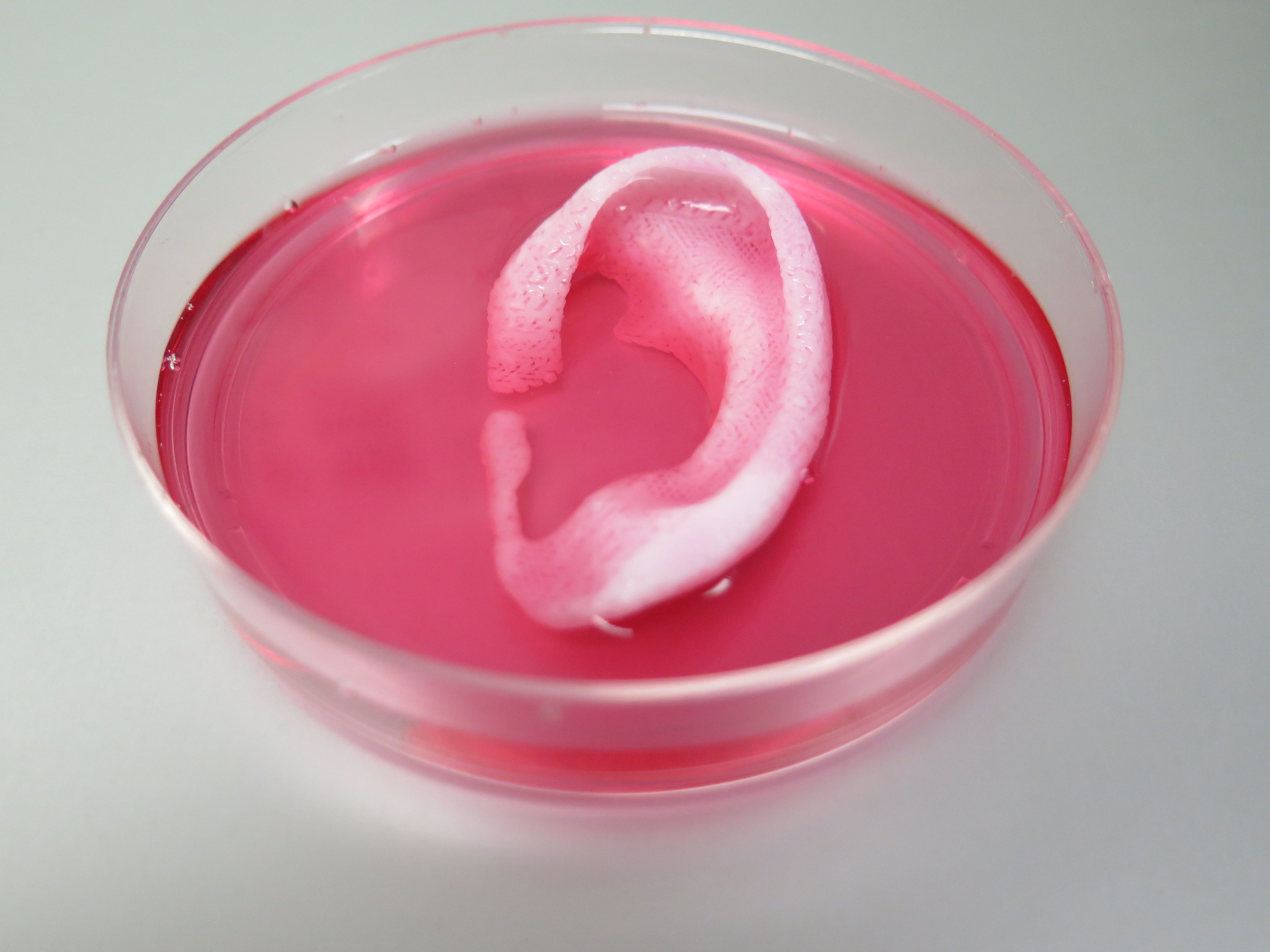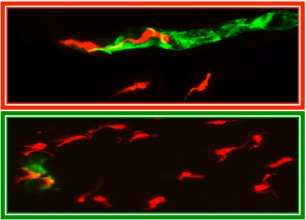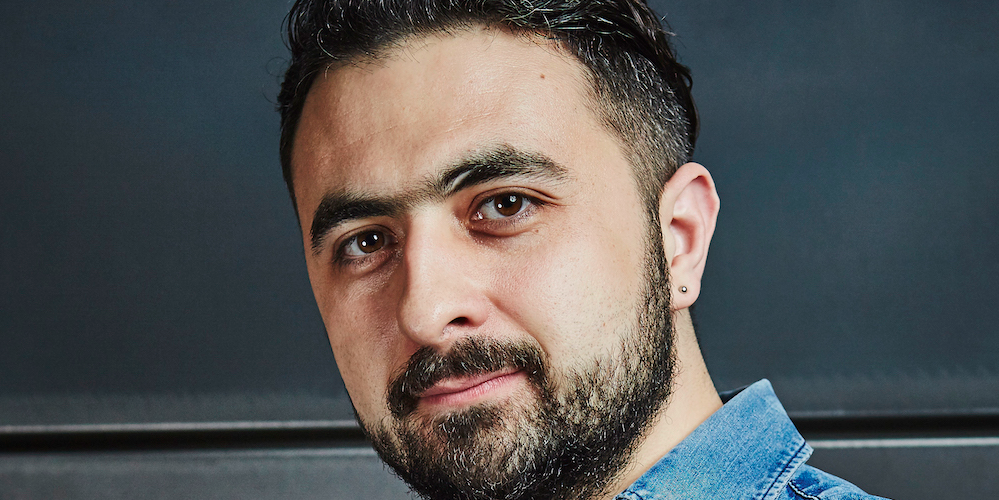Archive for the ‘biotech/medical’ category: Page 2642
Feb 25, 2016
Nitric oxide protects against parasite invasion and brain inflammation
Posted by Karen Hurst in categories: biotech/medical, neuroscience
African trypanosomiasis is called ‘sleeping sickness’ because when the infection is untreated, trypanosome parasites will invade the brain and cause disruption of sleeping patterns and irreversible neurological damage. A study published on February 25th in PLOS Pathogens reports that in a mouse model of trypanosome disease, nitric oxide (NO) plays an unexpected role in preserving the integrity of the blood brain barrier (BBB), thereby reducing parasite invasion into the brain, and likely limiting neurological damage.
NO is generally thought to be a pro-inflammatory signal, promoting a strong immune response against pathogens. The resulting inflammation is a mixed blessing: on one hand, it helps to control potentially dangerous pathogens, but on the other, it can cause “collateral damage” to the inflamed tissue.
Martin Rottenberg and colleagues, from the Karolinska Institute in Stockholm, Sweden, are interested in how trypanosome parasites cause disease and in the host immune defense against them. In this study, they examine the role of NO in a mouse model of trypanosomiasis, with a focus on how the parasites manage to get through the so-called blood brain barrier (BBB), the border surrounding the mammalian brain that is normally impenetrable to foreign intruders as well as most host cells.
Continue reading “Nitric oxide protects against parasite invasion and brain inflammation” »
Feb 25, 2016
Doctors implant 3D-printed vertebrae in ‘world’s first’ surgery
Posted by Karen Hurst in categories: 3D printing, biotech/medical, cyborgs, neuroscience
Just Amazing
Ralph Mobbs, a neurosurgeon at the Prince of Wales Hospital in Sydney, made medical history in late 2015 when he successfully replaced two vertebrae with custom made prosthesis. The patient, in his 60s, suffered from Chordoma, a particularly nasty form of cancer that had formed on his top two vertebrae and threatened to cinch off his spinal cord as it grew. That would have left him a quadriplegic. Complicating matters, those top two vertebrae are what allow you to turn and tilt your head, so it’s not like doctors can easily fashion a replacement out of bone grafted from another part of the patient’s body. They have to fit perfectly and that’s where the 3D printers come in.
Mobbs worked with Anatomics, an Australian medical device manufacturer, to craft perfect replicas of the patient’s top two vertebrae out of titanium. This is the first time that these two particular neck bones have been printed and installed. “To be able to get the printed implant that you know will fit perfectly because you’ve already done the operation on a model … It was just a pure delight,” Mobbs told Mashable Australia. “It was as if someone had switched on a light and said ‘crikey, if this isn’t the future, well then I don’t know what is’.”
Continue reading “Doctors implant 3D-printed vertebrae in ‘world’s first’ surgery” »
Feb 25, 2016
Regenerative medicine scientists ‘print’ replacement tissue
Posted by Sean Brazell in categories: 3D printing, biotech/medical, life extension

Using a sophisticated, custom-designed 3D printer, regenerative medicine scientists at Wake Forest Baptist Medical Center have proved that it is feasible to print living tissue structures to replace injured or diseased tissue in patients.
Reporting in Nature Biotechnology, the scientists said they printed ear, bone and muscle structures. When implanted in animals, the structures matured into functional tissue and developed a system of blood vessels. Most importantly, these early results indicate that the structures have the right size, strength and function for use in humans.
Continue reading “Regenerative medicine scientists ‘print’ replacement tissue” »
Feb 25, 2016
Google’s London AI powerhouse has set up a new healthcare division and acquired a medical app called Hark
Posted by Klaus Baldauf in categories: biotech/medical, health, robotics/AI
Feb 24, 2016
Baltimore hackers say they reveal potentially deadly cybersecurity weaknesses at area hospitals
Posted by Karen Hurst in categories: biotech/medical, cybercrime/malcode
What happens when a patient is in X-Ray and the X-Ray machine blows up like a bomb killing the patient and staff in the room? Well, a new report shows that it can happen where machines are connected to any network (including the net) because a team of hackers showed in their report how they were they hacked several D.C. and Maryland Hospitals medical devices and numerous machines including life support, X-Rays, etc.
Area hospitals are riddled with cybersecurity flaws that could allow attackers to hack into medical devices and kill patients, a team of Baltimore-based researchers has concluded after a two-year investigation.
Hackers at Independent Security Evaluators say they broke into one hospital’s systems remotely to take control of several patient monitors, which would let an attacker disable alarms or display false information.
Feb 24, 2016
5 Ways Brain-Computer Interfaces Could Change The World — And Us
Posted by Karen Hurst in categories: biotech/medical, computing, cyborgs, neuroscience
Current experiments with brain-computer interfaces have allowed an amputee to “feel” with his prosthetic hand — what other wonders will we achieve with this technology?
Feb 24, 2016
Could SKIN CELLS help cure brain tumors?
Posted by Karen Hurst in categories: biotech/medical, neuroscience
Scientists at the University of North Carolina have turned skin cells into cancer-hunting stem cells (in green) that destroy brain tumors (pink) — a discovery that could lead to the first treatment in more than 30 years.
Feb 24, 2016
These headphones apparently make your brain release happy drugs
Posted by Karen Hurst in categories: biotech/medical, neuroscience

https://youtube.com/watch?v=IpFbPHwFL1s
Headphone that releases dopamine.
They claim to stimulate dopamine release.
Continue reading “These headphones apparently make your brain release happy drugs” »
Feb 24, 2016
These are the technologies that can help achieve the cancer moonshot
Posted by Karen Hurst in categories: biotech/medical, health, robotics/AI
Nice — Liquid biopsies, AI therapy, silico trials, precision surgery.
Negotiations and collaborations are launching now to decide which research trends and areas deserve the most support. Only disruptive innovations will be able to transform the status quo in cancer, leading patients to get more personalized and faster cancer care, while letting physicians do their job more effectively. Here are the technologies and trends that could help achieve the cancer moonshot.
Prevention and diagnosis
Continue reading “These are the technologies that can help achieve the cancer moonshot” »














